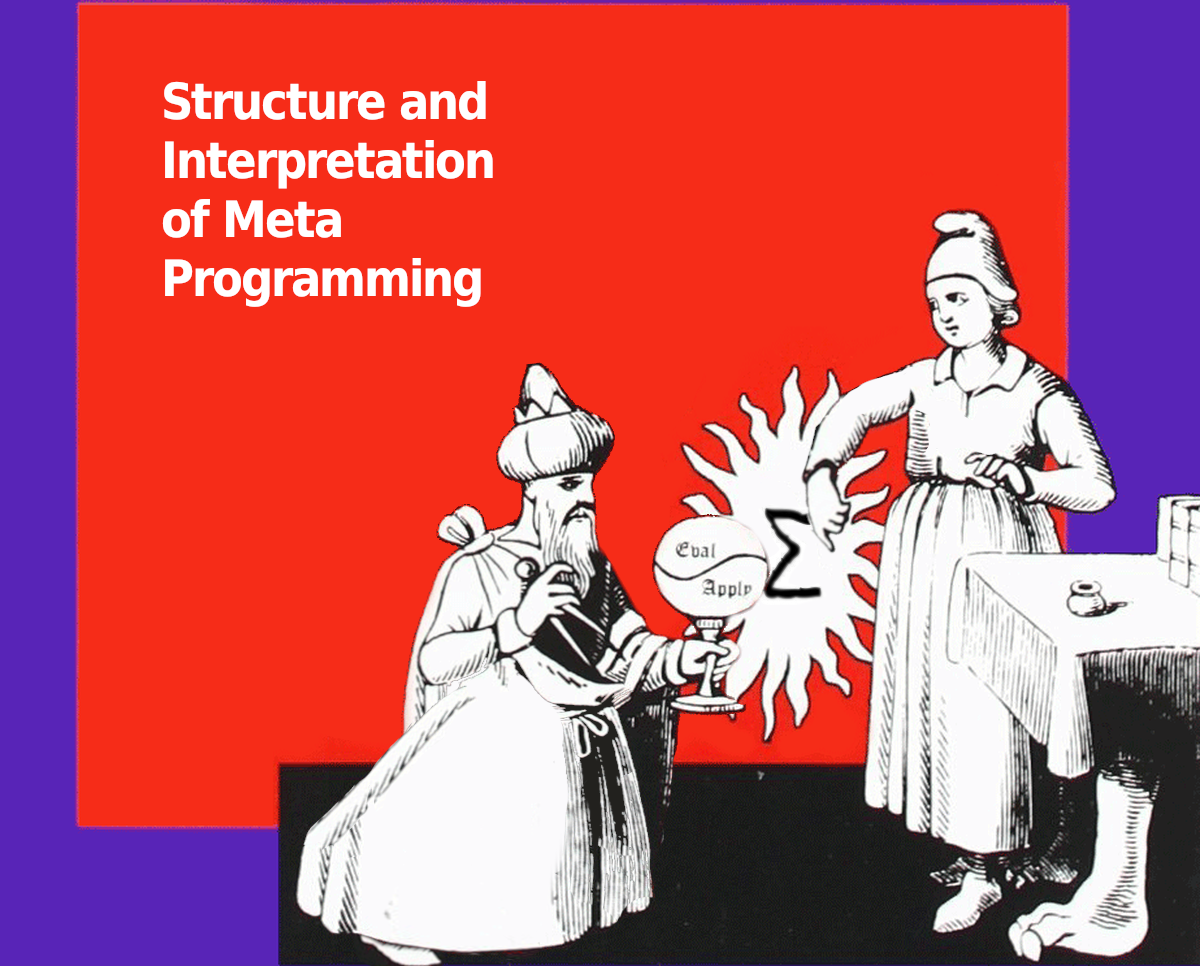Simp is my attempt to design and implement a minimalist lisp language.
Garbage collection and tail-call optimization are implemented.
See ./simp.pdf for documentation.
TODO:
- Multiple values?
- Arbitrary precision arithmetic.
(define ackermann
(lambda x y
(do
(display "compute")
(newline)
(if (= y 0) 0
(= x 0) (* 2 y)
(= y 1) 2
(ackermann
(- x 1)
(ackermann x (- y 1)))))))
(define ack-of-one
(ackermann 1))
(define val
(apply ackermann \(1 2)))
(redefine val
(ack-of-one 6))
The first expression defines the ackermann function; the second expression applies the ackermann function to 1 and 6.
The following can be observed:
-
The
quotesyntactic sugar is expressed with a backslash rather than with a apostrophe like in scheme. Apostrophes are used to represent literal characters like in C. -
The
lambdaform does not get its formal parameters between parentheses in a vector. It gets a sequence of symbols right after thelambdakeyword. Simp's(lambda x y (+ x y))is equivalent to Scheme's(lambda (x y) (+ x y)). -
The
lambdaform does not get a sequence of expressions as body. It gets a single expression as body. To evaluate to a sequence, use thedoform as body. Simp's(lambda x (do (display x) (newline)))is equivalent to Scheme's(lambda (x) (display x) (newline)). -
There is no
condform. Theifform is the same as scheme'scondbut with less parentheses. -
Procedures (but not macros) can be curried. In the example,
ack-of-one, defined as(ackermann 1)is equivalent to(lambda y (ackermann 1 y)). -
There are no pairs. S-expressions are not implemented as singly linked lists of cons cells, but as tuples/vectors.
-
set!does not redefine a variable, useredefinefor that. There is aset!procedure, but it is a vector mutator.
I tried to avoid auxiliary syntax as much as I could. An auxiliary
syntax is a syntactical identifier that can only be used inside another
syntactical form. Examples in Scheme is the else form, which can only
be used inside a cond. In Simp, I tried to minimize their use as much
as I could. For now, the only auxiliary syntax used in Simp are:
unquote: Available inside a quasi-quotation to evaluate an expression.splice: Available inside a quasi-quotation to splice a vector...: Available inside alambda(ordefunordefmacro) to create variadic procedures (or macros).
